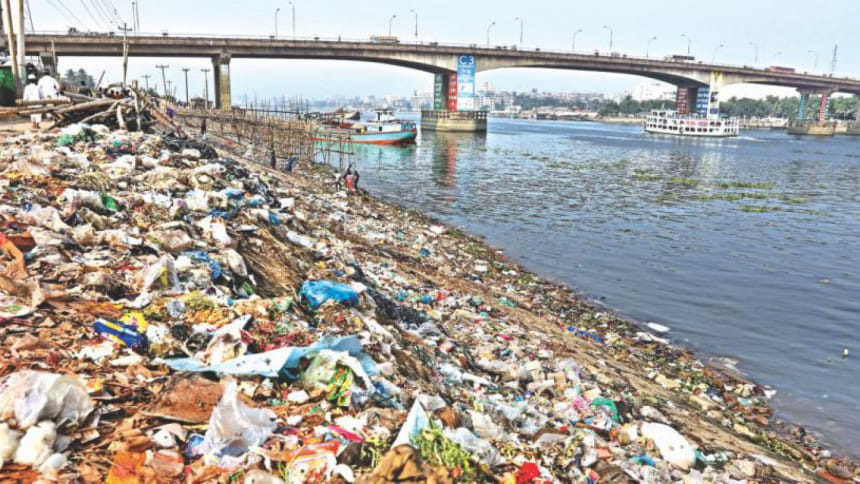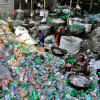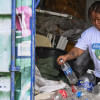The polythene menace

POLYTHENE is not biodegradable and is largely to blame for the filling up of canals and drainage systems in the city. Although Bangladesh banned its use nearly a decade ago, its widespread use continues in the absence of both recycling and a viable alternative to polythene as packing material. We generate around 1,700 tonnes of plastic waste daily and the import of plastic raw materials costs us Tk 2,000 crore annually.
The sad reality is that no government agency has been able to control the production, distribution, usage and dumping of polybags, and the use of polythene shopping bags is widespread. We need a nationwide campaign to raise people's awareness of what polythene is doing to our environment and to clamp down on factories producing polythene.
We believe the government should vigorously promote synthesised polymer from jute fibre that was discovered by a scientist at Bangladesh Jute Mills Corporation back in 2012. Jute-based packaging bag should be introduced on a wide scale because it is biodegradable while being water- and air-resistant. Jute polymer, as it is known, can carry about one and a half times the load of a traditional polythene bag while being environmentally friendly. The very fact that it is perishable in nature could be the answer to our environmental problems, and canals, waterways and drainage systems could be freed from the dreaded polythene and plastic products.
Large-scale production of jute polymer would go a long way in reviving our jute industry, save farmers involved in jute production, ensure that there is a market for jute round the year, and mitigate environmental concerns.

 For all latest news, follow The Daily Star's Google News channel.
For all latest news, follow The Daily Star's Google News channel. 








Comments